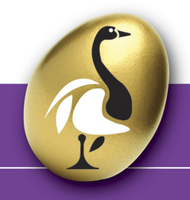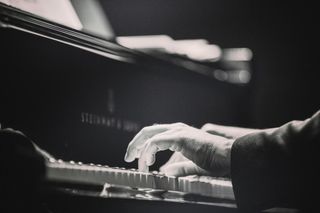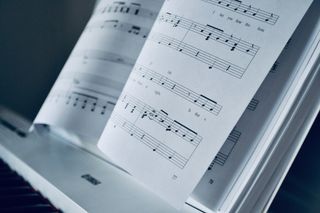Isle of Wight Piano Tuition - Beginners and up, all ages
Learning to think differently to improve your skills!
Sept 2025 UPDATE: Daytime slots now available - great for adult or retired learners!
Moira Moseley-Brown, LTCL, GTCL (hons), PGCE
CALL
Send me a question about piano lessons
What is your background?
I studied cello and piano at Trinity College of Music, London, where I achieved my LTCL (teaching) and GTCL (Hons). After gaining a P.G.C.E. I taught as a primary school teacher for 3 years before setting up my own piano and cello teaching practice in the Midlands in 1997. In 2002 my husband joined me as a private tutor and the business gradually expanded as more private tutors joined us. At its height, we had 12 part time private tutors covering the main curriculum from primary to A level and I taught around 70 music pupils each week.
What professional development have you done?
Perhaps my greatest influence was Pat Legg who was my last cello teacher at music college. She taught me everything that I know by pointing me in the right direction to answer my incessant questions about teaching music. She introduced me to the works of Kodaly, Dalcrose and FM Alexander. I went on to study the Alexander Technique for 4 years to become an ITM Alexander teacher. Although I do not actually practise as an Alexander teacher, it has heavily influenced how I teach.
I also attended Colourstrings courses which gave me the principles that I use to teach reading skills and the theory of music, and I also had a few lessons with the EMI recorded concert pianist Philip Fowke, who inspired my approach to practising skills.
What age range do you teach?
Ages 7-99! However, I prefer to recommend that children do not begin too early.
Unlike other instruments, there are no "child sized" pianos. There are some cheap, smaller electronic keyboards which I have used with younger pupils, but I have never seen that these children ever really benefitted from starting so young.
Also, you have to consider what they could have been doing instead of learning an instrument so early, such as playing and running around outside and developing gross motor skills and their creativity. These activities are essential for children's development overall and are often sidelined for more pressured learning.
On the other hand, I often hear adults state that they are too old to learn and that it is easier to learn when you are younger.
I disagree with this statement. Adults bring a breadth of knowledge and learning that they draw on to understand a new subject. They also have the enthusiasiam of doing what they want to do rather than being told that they have to do it!
My oldest pupils were in their 80's and they were an absolute joy to teach.
Do you enter pupils for exams?
The short answer to this question is, "only if I have to!"
Exams need to be put into context. They were originally set up as a source of income for the music colleges, so there is a lot of encouragement to put pupils through every exam.
I only use exams if they will benefit the individual pupil, and I never take a pupil through every grade.
Sometimes, having a certificate of a standard can inspire students, but the process can also be gruelling and it has to be remembered that there is much more learning going on when many more pieces and skills are covered in a term. Being able to play 3 pieces well, zip up and down a few scales and sing back a tune can have its place, but it is not essential to gain a lifelong love of playing the piano.
However, I do consider the grade 5 music theory exam to be very worthwhile.
I am constantly but subtly teaching the theory of music to my pupils, so when the time comes this is a fun way to gain a certificate that is well respected. Fellow music teachers often used to send their pupils to me to teach them grade 5 theory, so that they could be entered for the relevant grade 6 practical.
Having said all of that, I have had excellent music exam results (no one has failed one yet!) and I do enjoy putting so much effort into the few pupils that I enter each term.
What do you believe is the job of a piano teacher?
If a pupil leaves me with the same enthusiasm that they had on their first, exciting lesson, then I consider that I have done my job well.
I want my pupils to be able to turn to the piano for enjoyment and expression for the rest of their lives.
The main skill that I believe that I can impart to my students is how to practise efficiently and effectively. This is a very enjoyable process that convinces me that I have the best job in the world!
In your opinion, what is the biggest misconception of playing the piano?
Most people think that playing an instrument is a physical skill, such as typing. I believe that it is a purely mental skill (think about it - the fingers are commanded by the brain - they never do anything without the brain's instruction first) and that is why learning music is so challenging. There have been studies of concert pianists showing that multiple areas of their brain "light up" during a performance. My husband would often comment on how much better his students' mental abilities were if they have had a piano lesson before their tutorial with him!
How long do you expect pupils to practise?
This is my least favourite question!
In fact, I do not expect my pupils to practise.
It is my job to encourage and enthuse a pupil to practise. I want them to see music and the piano as a source of fun and enjoyment. With children, I only ask that they say "hello" to the piano as often as possible. This may be just opening the lid and playing a few notes, or playing what they studied in our lesson.
Practising evolves as skills become learned. The best practise is always during the lesson and pupils tend to play what they practised in the lesson during the week. Here are two of my favourite quotes that I tend to use when discussing practise:
1) "It is a form of insanity to expect different results from the same method".
I often hear people constantly play a passage over and over again, getting more and more frustrated because this method is not improving the outcome. They continue do this is because they have no other way of practising. It is my job to provide other methods to gain the results that they want.
2)"Practise does not make perfect, it makes permanent."
It can be very difficult to undo a passage that has been played incorrectly many times during the week!
Most pupils are too inexperienced to be their own objective and professional coach during the week which is why the lessons are so important for them to achieve their goals. Over time, and with application and a good working ethos, they can achieve these abilities and can eventually continue their studies without regular lessons. This is when my goal has been achieved as a professional piano teacher!
However, as a caveat, if a pupil shows no interest in playing the piano at all, it really is not in anyone's interest to continue with lessons.
Where do you teach?
I teach in my own home in the beautiful area of Luccombe Chine, Isle of Wight.
Do you belong to any professional bodies?
Yes, I am a full member of the ISM (Incorporated Society of Musicians) and am DBS checked.
How much do you charge?
I charge £18.00 for half an hour. However, as many of my pupils find out, I do not charge for the extra time that I consider necessary on certain occasions as I am more concerned that I do a good job than clock-watch!!


